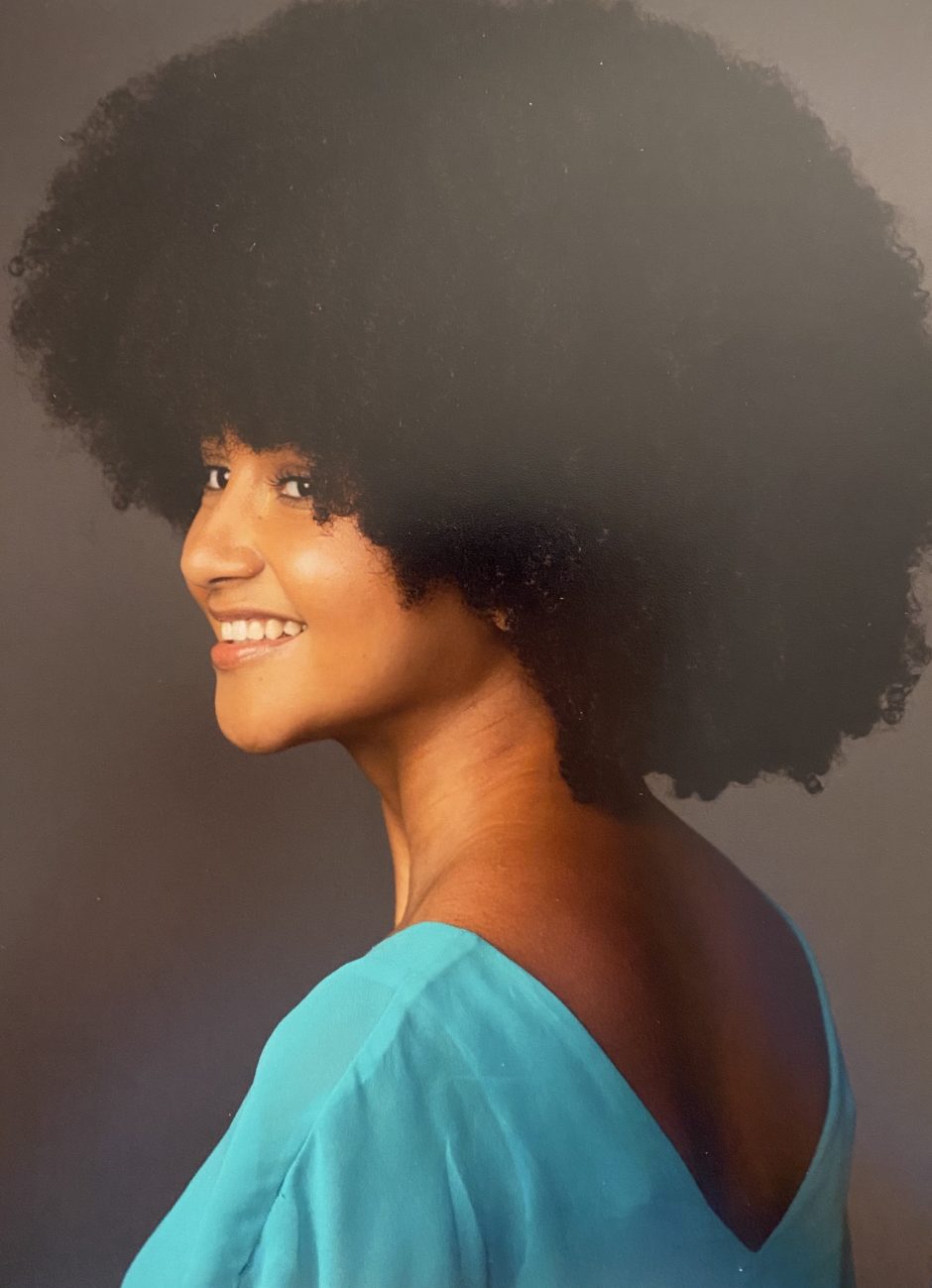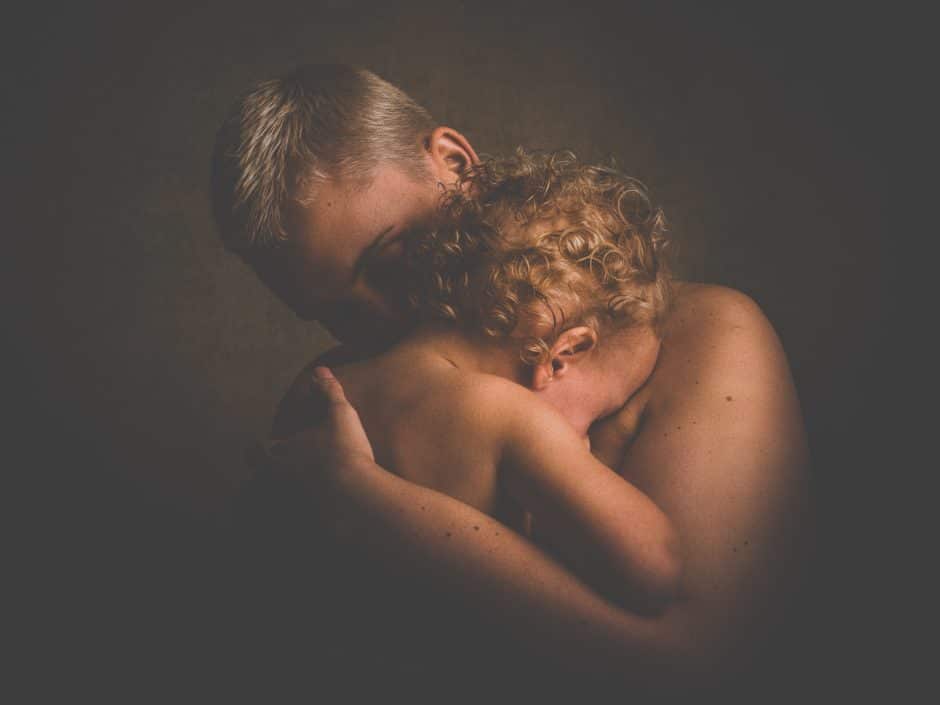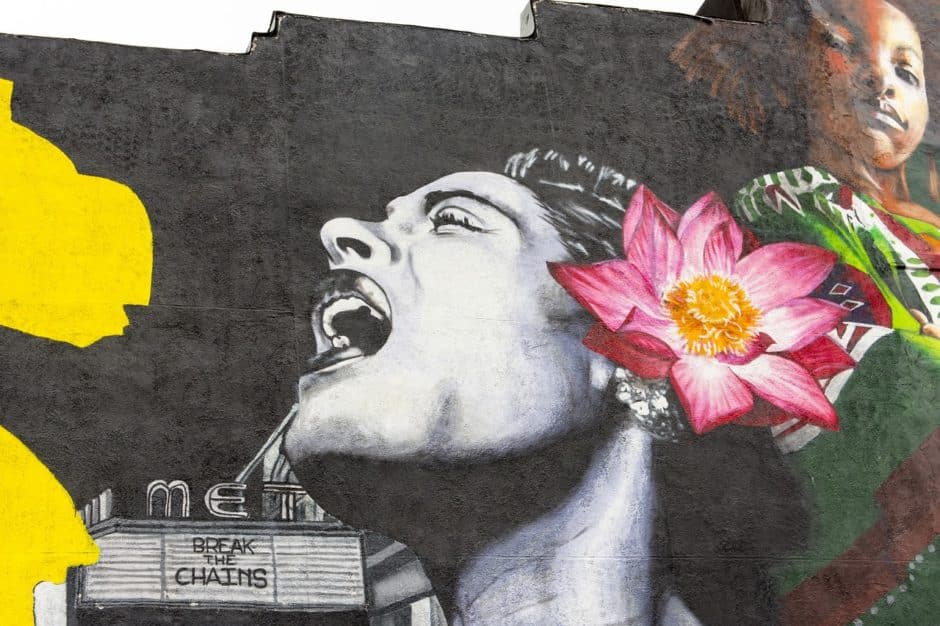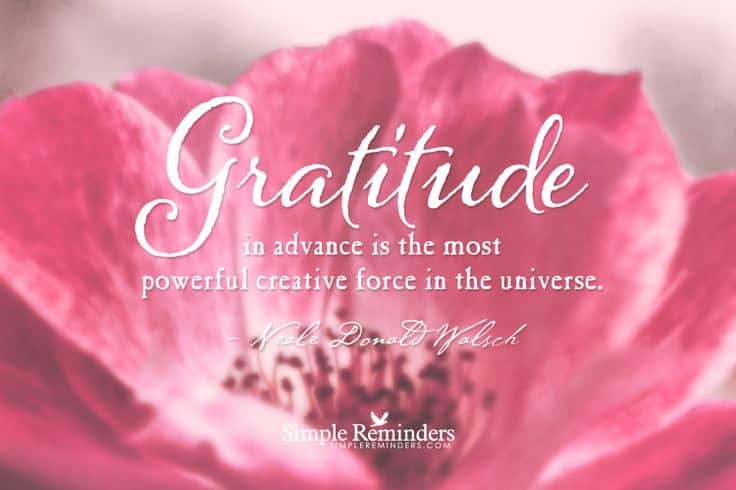By Bella Reina
I look into a mirror and the first thing I see is hair. It is a big mess of curls that at first looks black, but up close is many different colors, like myself. My hair is large and bushy, but when touched feels like the inside of a teddy bear, a bit coarse and a bit soft, also like myself.
Hair–what a thing to hold significance. It can be cut, it grows anew, it is an extension of my body that is noticeable but holds no pain. That is unlike me. I’ve had a long journey with this hair and this body.
In my baby pictures I am chubby, with my grandmother’s American features peeking out from underneath a baby afro. Round. My nickname was bolo bolo, a Cameroonian word that means balloon, to fondly reiterate my roundness to me. Growing up, my mother never had to care for her own curls because she was forced to keep them short in boarding school. When I was around two or three she realised she cannot make beauty out of this growing, thick, baby afro mix, and relaxed it. Quickly I went from round to short and skinny, with lanky arms and knobby knees. My hair did also. Because of the chemical damage it never grew past my chin, and was always in braids with colorful beads hanging down my face that the little white girls in school would comment on.
I hated it. I did not want my skinny ribs or my braids, and so I went to the hair salon every week for years to have my hair straightened out, to make beauty of it, to make my mess fall in line. And always, my hair would be straightened and afterwards, as I looked in the mirror and people would tell me how beautiful I was, I still could not believe that the girl with the short straight hair hanging by her face was real. By the end of week my hair would always become big and frizzy again, it would no longer be beautiful, it would take up space, it would not fall in line. I could not fall in line, I could not straighten myself out.
Sometime in middle school, amongst my sadness that my hair would always curl no matter how much heat I pressed to it, my nanny (who did my hair) decided she would only keep doing it if I went natural. I stopped relaxing it, I went back to beads and braids, and tried to hold my head high when other girls commented on it, although it shamed me that bolo bolo was so easy to attack through my little girl braids and beads.
Finally, in the last two weeks of eighth grade, I cut off the ends and put my hair in twists. Before eighth grade prom I took the twists down, and curls, pretty, defined, corkscrew curls framed my face for the first time. I never knew my hair could be something I wanted others to see.
I went into high school and my mess of hair was the thing I became most identifiable for. I am still short, but womanhood has changed skinny and straight into softly curved, like my hair. My hair is long now and grows up to the sky, taking up space wherever I go, and I no longer try to make myself small.
The bushy mess, for the first time, brings community, as women on the train in the Bronx nod at me and raise a fist in recognition. A new generation of little black girls look at my afro as I walk by in Central Park and do not recoil at the sight, at the statement I make. They find beauty, and more importantly, themselves. With this community still comes divide, and girls still comment, adolescent tongues sharper than ever at my refusal to conform. Somedays, when I am tired of carrying the weight of myself, I am amazed at my hair’s ability to defy the gravity of these comments, to remain above when I feel low. That’s unlike me, but still like me in that I too have the ability to grow to be high. I find life in the insignificance of my big, secretly multicolored, curling, messy, paradoxical hair. I look into the mirror and I’ve become me.
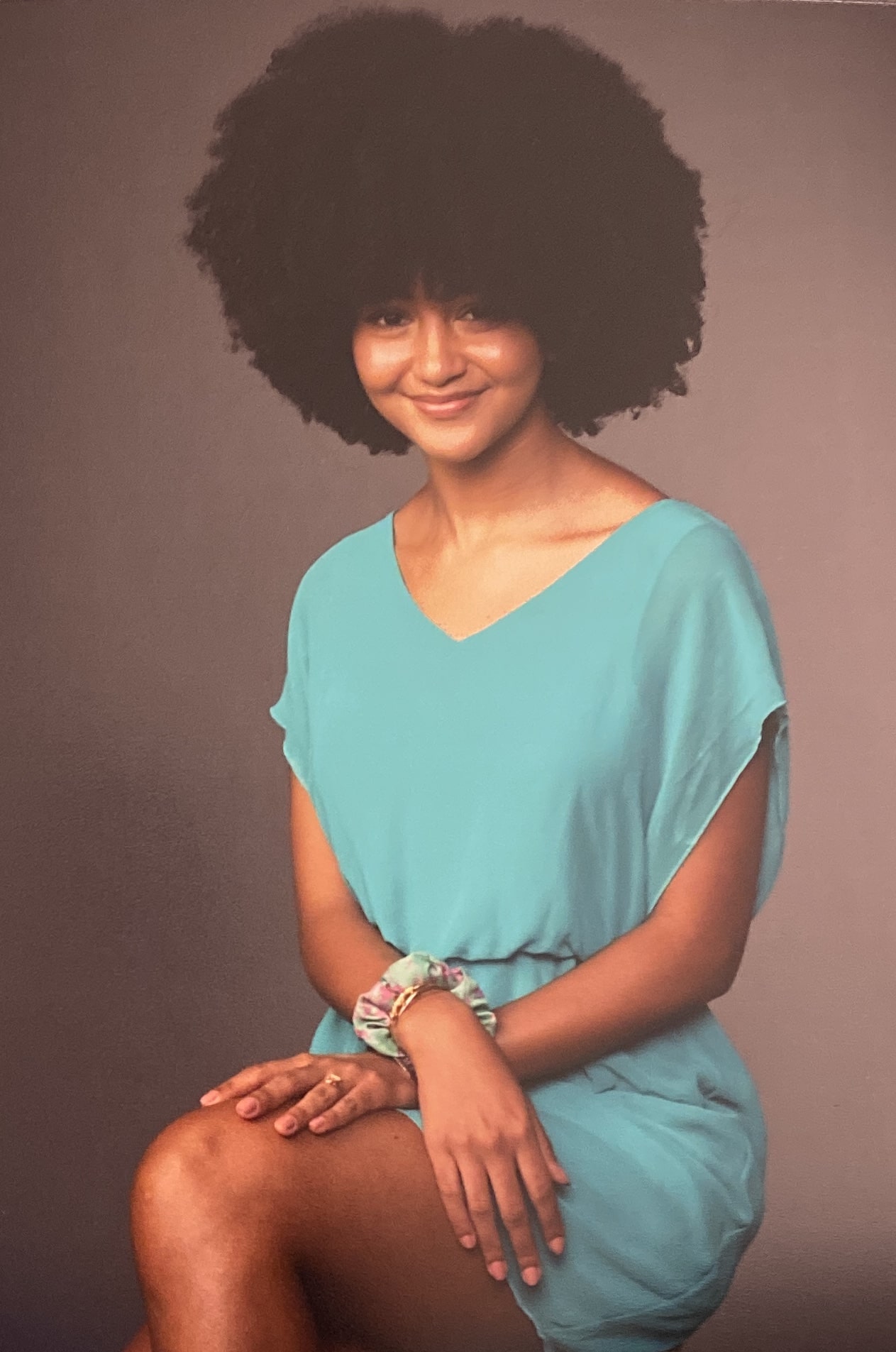
Bella Raina is a rising senior at Notre Dame School of Manhattan. She has been writing since she was 8 years old and has written a multitude of different pieces in varying forms, ranging from creative non-fiction to poetry. Bella has performed her poetry in school, during the Notre Dame Christmas Concert. She hope to write in college as well. (We hope she she keeps writing, too!)
Anti-racist resources, because silence is not an option
~~~~~~~~~~~~~~~~~~~~~~~~~~~

